Can Spain become the world’s top tourism
market?
12 MARCH 2019 7:27 AM
While Spain continues to climb the rankings of the world’s tourism destinations, a number of opportunities and challenges
remain along the way in the country’s hyperactive hotel sector.
Spain’s hotel industry is thriving.
According to World Tourism Organization, 2018 was its sixth record year in a row in terms of tourism arrivals. Last year, Spain received 82.6 million tourists,
second only to France, with 90 million tourists, and ahead of the United States, with 81 million. In terms of tourism revenue, Spain was also number two
globally, behind the U.S. and ahead of France. The prognosis that the World Travel and Tourism Council is making is that by 2028, international tourist
arrivals in Spain could reach 121 million.
To add to this, Spain’s largest feeder market, the United Kingdom, has grown by 20.8% (9.8 million room nights) in the last five years. Moreover, in the same
period of time, room nights from U.S. visitors have grown by 47.2% (2 million room nights).
Regarding transactions, the activity in Spain is booming. Last year, Spain was second in Europe, after the U.K., in terms of investment volume, reaching €4.9
million ($5.5 million), thanks primarily to Blackstone’s acquisition of Hispania. So, a U.S. vehicle, the world’s largest real estate private equity firm, is now the
second-largest hotel owner in Spain.
But of course, not everything happening in Spain reflects strict financial performance criteria. One cannot deny that the global interest rate climate is keeping
the pressure on real estate assets also in Spain. Transactions like the Villamagna, Ritz Hotel, Four Seasons Madrid or YTL reflect more tax optimization
strategies, country risk allocations or interconnected board moves, rather than strict hospitality criteria.
But where are the opportunities in Spain?
For starters, in excess of 650 hotel management companies operate in this market, so the environment is prone for consolidation. The space for domestic
M&A activity is significant, as well as the benefits from acquiring management platforms, as KSL, Gaw Capital and Minor have experienced. Costa del Sol,
the Balearic Islands and the Canary Islands are obvious targets with plenty of potential.
With 66% of total room nights coming from international markets, hotel owners in Spain are increasingly appreciating the need to incorporate brands with
international reach. But, with the exception of Accor and Marriott, the international brands that are present in this territory are barely scratching the surface
of this market upside. A lack of a serious commitment through a concerted effort by locally based architecture, F&B, legal, IT and franchise support teams,
and the belief that development can be managed remotely from the U.K., is the primary factor that is hindering the growth of other top American brands.
Meanwhile, Spanish banks, such as Caixabank or Sabadell, are going in the opposite direction and are proving that the franchise model, which no single
Spanish group is adopting, is fully bankable. This is bringing a breath of fresh air into projects liquidity.
From a geographical perspective, the market to enter now is Catalonia. Hard Rock, Accor, Marriott and H10 Hotels are growing there now. The
fundamentals of the region’s economy should go back to normal in the medium term.
Last, but not least, at the lower end of the spectrum lies another niche. The largest Spanish groups are abandoning the 3-star resort category segment (while
conversely innovative 3-star urban concepts are booming). Absolutely not a single player, domestic or international, has been able to consolidate this massive
resort category of the market which accounts for 26% of the total room supply in Spain.
Portobello Capital is attempting this. They are acquiring and leasing independent properties in the holiday segment through Blue Sea Hotels, although no true
product consolidation is being carried out. This is a common theme: investment vehicles are acquiring assets, but they are neither consolidating nor
repositioning them.
The flipside of this opportunity, not only with 3-star properties but with all categories, has been an acute lack of capex re-investment in holiday properties that
has lasted several years, as noted by ISHC in its 2018 CapEx Report. During the financial crisis, hotel owners in top resort destinations such as Spain did not
generate enough excess cash-flow to re-invest in property capex. Hotel owners have been focusing during the last 10 years on sweating the assets and
maximizing their returns. Luckily, this owner mentality is gradually evolving.
Thomas Cook’s latest investment vehicle speaks louder than words, stressing that Spain is not a competitor to Turkey, Bulgaria, Greece or Egypt, neither in
quality, nor in volume. Moreover, Spain hotel supply doubles Turkey’s capacity, according to STR figures. (STR is the parent company of Hotel News Now.)
Opinions
By Ivar Yuste
Copyright © 2008-2019 STR, Inc. Page 1 / 2
The flipside of this opportunity, not only with 3-star properties but with all categories, has been an acute lack of capex re-investment in holiday properties that
has lasted several years, as noted by ISHC in its 2018 CapEx Report. During the financial crisis, hotel owners in top resort destinations such as Spain did not
generate enough excess cash-flow to re-invest in property capex. Hotel owners have been focusing during the last 10 years on sweating the assets and
maximizing their returns. Luckily, this owner mentality is gradually evolving.
Thomas Cook’s latest investment vehicle speaks louder than words, stressing that Spain is not a competitor to Turkey, Bulgaria, Greece or Egypt, neither in
quality, nor in volume. Moreover, Spain hotel supply doubles Turkey’s capacity, according to STR figures. (STR is the parent company of Hotel News Now.)
Spain’s capacity is also 23% larger than the combined hotel supply of Egypt, Greece, Tunisia, Morocco and Algeria. So, it remains to be seen how much of a
threat can Brexit really become for Spain, in light of the never-ending political instability in the Mediterranean alternative markets and their limited size and
different quality.
Only when Spain moves from acquisition activity into consolidation and repositioning, will the market become the world’s leading destination.
Ivar Yuste is a Partner with hospitality consulting firm PHG in Spain and a member of The International Society of Hospitality Consultants (www.ishc.com). PHG provides hotel advisory services to
hotel owners and investors in EMEA and the Americas. Visit PHG at www.phghr.com or email Ivar Yuste at ivaryuste@phghr.com.
The opinions expressed in this column do not necessarily reflect the opinions of Hotel News Now or its parent company, STR and its affiliated companies. Bloggers published on this site are given the
freedom to express views that may be controversial, but our goal is to provoke thought and constructive discussion within our reader community. Please feel free to comment or contact an editor with
any questions or concerns.
Copyright © 2008-2019 STR, Inc. Page 2 / 2

